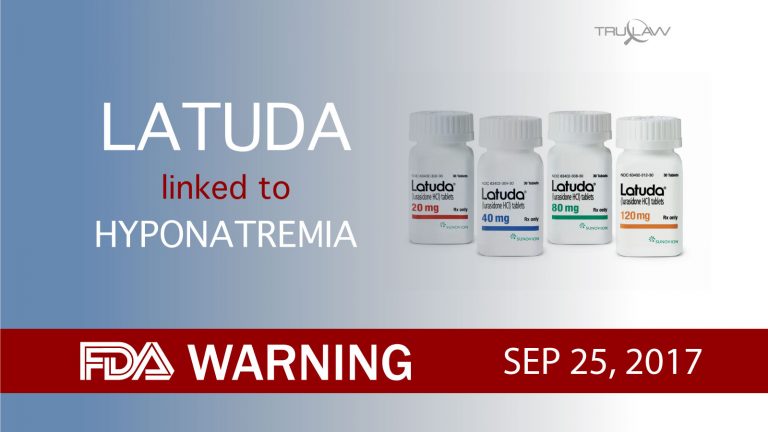
The FDA warns that Latuda, a drug used to treat major depressive episodes, could lead to a serious condition called hyponatremia which occurs when water and sodium are out of balance in the body.
Latuda is manufactured by Sunovion Pharmaceuticals Inc.
The U.S. Food and Drug Administration (FDA) approved Latuda on October 28, 2010, for the treatment of schizophrenia in adults. In July 2013, the FDA approved Latuda as a monotherapy and an adjunctive therapy (with lithium or valproate) to treat major depressive episodes connected to bipolar I disorder. Then in January 2017, the FDA approved a supplemental use for Latuda the treatment of schizophrenia in adolescents aged 13 to 17 years old. This is the first treatment to be approved in 5 years for adolescent patients with schizophrenia.
Latuda is the first medication approved to treat bipolar depression that can be taken independently (monotherapy) or along with a mood-stabilizing medication (adjunctive therapy).
In clinical studies, the drug has proven to be effective for many patients struggling with bipolar depression.
Bipolar depression is part of a larger condition called bipolar disorder, a lifelong, chronic illness that affects the brain and causes extreme mood swings of various lengths. Patients suffering from bipolar disorder can experience mania (feeling euphoric and irritable) followed by depression (feeling hopeless). The highs and lows of bipolar disorder are known as episodes.
Approximately 5.7 million adults in the U.S. and as many as 60 million people worldwide are affected by bipolar disorder each year. On average, there are over 750,000 individuals prescribed Latuda annually at a cost of $2.44 per prescription.
Latuda Label Changes
On September 25, the FDA approved labeling changes for Latuda (lurasidone hydrochloride), updating it to include the new risk of hyponatremia in the Adverse Reactions, Postmarketing section.
Hyponatremia is a condition that occurs when the body retains too much water, which results in low levels of sodium in the blood. As sodium levels drop, the body’s cells begin to swell, and this swelling can cause mild to life-threatening health conditions, such as:
- Heart failure
- Liver failure
- Renal failure
- Pneumonia
Symptoms of hyponatremia include nausea, malaise, lethargy, decreased level of consciousness, headache, seizures, and coma, depending on the level of sodium reduction.
Besides the labeled risks associated with the drug, TruLaw is also monitoring some unlabeled serious risks connected with Latuda use, including seizure, serotonin syndrome, anaphylactic reaction, generalized tonic-clonic seizure, paralysis, pancreatitis, Stevens-Johnson syndrome, and choking.